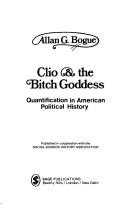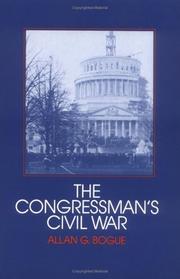| Listing 1 - 4 of 4 |
Sort by
|
Book
ISBN: 0803903219 Year: 1973 Publisher: Beverly Hills, Calif. Sage
Abstract | Keywords | Export | Availability | Bookmark
 Loading...
Loading...Choose an application
- Reference Manager
- EndNote
- RefWorks (Direct export to RefWorks)
Politics --- Sociological theory building --- History as a science --- History --- Social sciences --- Research. --- Methodology.

ISBN: 080392089X 0803920903 Year: 1983 Publisher: London Sage
Abstract | Keywords | Export | Availability | Bookmark
 Loading...
Loading...Choose an application
- Reference Manager
- EndNote
- RefWorks (Direct export to RefWorks)
United States --- Politics and government --- Statistical methods. --- Sources.

ISBN: 0511572395 0521354056 0521357055 Year: 1989 Publisher: Cambridge : Cambridge University Press,
Abstract | Keywords | Export | Availability | Bookmark
 Loading...
Loading...Choose an application
- Reference Manager
- EndNote
- RefWorks (Direct export to RefWorks)
In the historical literature of the American Civil War, the president, the generals, and the cabinet secretaries have won the war of words. Of the hundreds of men who served in the House of Representative during this great struggle, only a handful appear typically in general discussions of the period. Yet without a deeper understanding of the contributions of the members of Congress to the successful prosecution of the war we cannot fully appreciate the desperate nature of that conflict and its significance in the building of the nation. This book explores important aspects of the Civil War from the perspective of Capital Hill. It is an effort to reconnoiter some of the possibilities for understanding the congressmen, their relations with one another, and their interaction with President Lincoln. Designed as an exploration rather than as a full-scale history of the Civil War Congress, this book reveals a legislature in which the average length of service was very short, although a relatively small core of national public figures provide continuity. The era was one of strong ideology and fateful policy decisions, but the congressmen continued to think also as politicians. The author suggests that not one but many political agendas were at issue in Congress during the Civil War. The Republicans had significant success in achieving the goals represented by their national platform of 1860, but the necessity of developing an ad hoc wartime agenda resulted in major struggles between party leaders and between elements in Congress and in party caucuses, as well as between the legislative and executive branches. In such activity neither the president nor any particular congressional group was the clear victor, and the war ended with momentous issues still undecided. While public attention focused on such issues and great armies marched to victory or disaster, the federal lawmakers fulfilled their institutional roles to their own best advantages and thought in terms of patronage, personal power, and career advancement.
Nationalism --- History --- United States. --- U.S. House of Representatives --- House of Representatives (U.S.) --- Palata Predstaviteleĭ Kongressa SShA --- United States --- Politics and government --- Arts and Humanities
Book
ISBN: 0691075905 1322885397 0691606625 140087114X 0691100624 0691635331 9781400871148 9780691606620 9780691100623 9780691075907 Year: 1978 Publisher: Princeton, N.J.: Princeton university press,
Abstract | Keywords | Export | Availability | Bookmark
 Loading...
Loading...Choose an application
- Reference Manager
- EndNote
- RefWorks (Direct export to RefWorks)
Concentrating on the American historical experience, the contributors to this volume apply quantitative techniques to the study of popular voting behavior. Their essays address problems of improving conceptualization and classifications of voting patterns, accounting for electoral outcomes, examining the nature and impact of constraints on participation, and considering the relationship of electoral behavior to subsequent public policy.The writers draw upon various kind of data: time series of election returns, census enumerations that provide the social and economic characteristics of voting populations, and individual poll books and other lists that indicate whom the individual voters actually supported. Appropriate statistical techniques serve to order the data and aid in evaluating relationships among them. The contributions cover electoral behavior throughout most of American history, as reflected by collections in official and private archives.Originally published in 1978.The Princeton Legacy Library uses the latest print-on-demand technology to again make available previously out-of-print books from the distinguished backlist of Princeton University Press. These editions preserve the original texts of these important books while presenting them in durable paperback and hardcover editions. The goal of the Princeton Legacy Library is to vastly increase access to the rich scholarly heritage found in the thousands of books published by Princeton University Press since its founding in 1905.
Elections --- History. --- #SBIB:328H31 --- 328 <73> --- 328 <73> Parlement. Volksvertegenwoordiging. Regering en parlement--Verenigde Staten van Amerika. VSA. USA --- Parlement. Volksvertegenwoordiging. Regering en parlement--Verenigde Staten van Amerika. VSA. USA --- History --- Instellingen en beleid: VSA / USA --- Elections - United States - History
| Listing 1 - 4 of 4 |
Sort by
|

 Search
Search Feedback
Feedback About UniCat
About UniCat  Help
Help News
News